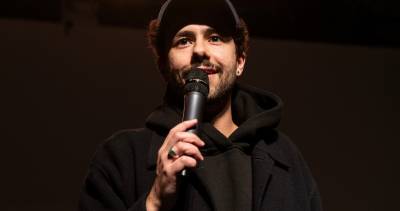Book reveals high cost of attack on WE
A former director of WE Charity sets the record straight on a scandal that never was
By Kirk MacDonald
WHAT WE LOST
Inside The Attack on Canada’s Largest Children’s Charity
By Tawfiq S. Rangwala
416 pages. Optimum Publishing International
In his new book, What We Lost, Tawfiq Rangwala outlines in painstaking detail how WE Charity devolved from a media darling to dust.
Rangwala’s book is not only impeccably sourced (which one would expect from someone who makes his living as a lawyer in New York City), but also deeply insightful. The author grew up in Toronto and was a classmate of one of the two Kielburger brothers who founded WE Charity. He sat on its board for four years from 2017 to 2021.
The Kielburger brothers, alongside WE Charity, found themselves in the eye of a political and media storm that not only rivalled (in terms of media coverage) but was also related to the coronavirus pandemic.
On March 12, 2020, Sophie Grégoire Trudeau became the 158th Canadian diagnosed with COVID several days after returning from London where she had spoken at a WE Charity event called WE Day. The Prime Minister’s Office released a press statement that read: “Having recently returned from a speaking engagement in London, UK, the Prime Minister's wife Sophie Gregoire Trudeau began exhibiting mild, flu-like symptoms including a low fever late last night.”
The press statement implied that Grégoire Trudeau had caught the virus at WE Day, setting off media speculation of a “spreader event” and the first wave of biting criticism of the charity.
It wasn’t until more than a year later that Tawfiq Rangwala made the decision to write this book.
Rangwala’s decision came on the night of March 27, 2021, when Marc Kielburger shared with him an alleged extortion attempt by a journalist demanding tens of millions of dollars. If the charity declined to pay, the journalist would unleash yet another wave of bad publicity. Reed Cowan, a broadcast anchor with Sinclair Television in the U.S., is the journalist.
Cowan was the star witness months earlier at a parliamentary hearing convened to discredit WE Charity, the Kielburger brothers, and anyone who continued to stand by the charity. At that point, the media had turned into a pack of jackals further incited by Conservative MP Pierre Poilievre and NDP MP Charlie Angus.
WE Charity flatly turned down the demand for money. Cowan never launched his threatened media assault and never made any legal claim.
Shortly thereafter, the Washington Post advised WE Charity that it planned to write about the alleged extortion attempt. WE Charity provided the newspaper with the nine-page demand letter. On April 2, 2021, The Post’s highly respected media critic, Erik Wemple, wrote: “The case underscores the importance of journalists maintaining a bulwark between their professional pursuits and their private crusades…Members of the media should be mighty careful about ever whipping out scary language about ‘public infamy’ given their role in facilitating an outcome.” (Full disclosure: The book reviewer, Kirk MacDonald, worked with Erik Wemple at the Washington City Paper in 2007). Other than a brief in the Las Vegas Review-Journal, no other North American media outlet picked up the story.
In the end, it was the selection of WE Charity to administer a $500 million+ Canadian Student Service Grant program that was the nail in the coffin. Those who questioned the decision to award WE Charity the job of running the grant program, including the media and the above-named Canadian politicians, whipped up a frenzied scenario that nearly brought down the Trudeau government, cost Finance Minister Bill Morneau his job, and mortally wounded the credibility of the country’s largest youth charity and its leadership.
After 125,000 (media) references, no ethics conflicts or financial malfeasance were discovered.
What remains are two defamation and libel lawsuits, one filed against CBC and the other against the podcasting platform Canadaland.
What was lost in the pursuit of a villain or villains in what is referred to as the We Charity Scandal?
An untold number of life-changing experiences for the youths who were or in the future would have been part of WE Charity development programs.
As Rangwala said in the introduction to What We Lost: “As I wrote this book, I was frequently reminded of an adage commonly attributed to Dr. Seuss. Sometimes the answers are simple and the questions are complicated.”














